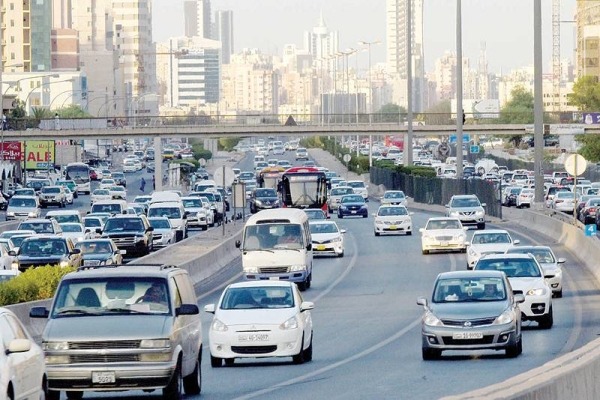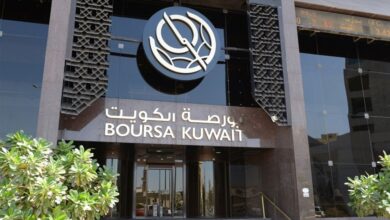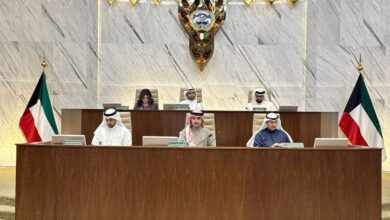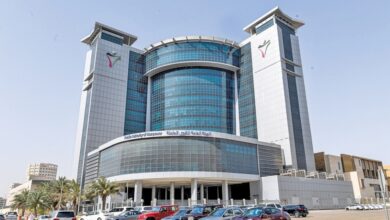Kuwait to modernize traffic rules with urgent law amendments
Traffic services, crucial for attracting investments, are hindered by outdated laws, high violation rates, rising accidents, and worsening congestion, while ineffective sanctions and poor driving behaviors exacerbate the crisis, creating ongoing social and economic challenges.

• Traffic issues have become a key factor in social, economic, and societal problems, with the memorandum citing thirteen reasons for urgent law amendments, stressing the importance of timely action to attract foreign investments.
The explanatory memorandum accompanying the draft amendments to Kuwait’s traffic law has stressed that the current traffic situation cannot tolerate further delays. Citing thirteen critical reasons, the amendments aim to modernize regulations and address longstanding challenges.
Traffic services play a crucial role in attracting investments, yet the law has remained unchanged for 23 years. The high rate of traffic violations and accidents continues to cause significant human and material losses, while the rising number of vehicles and expanding road networks only worsen congestion.
Negligence and unclear driving practices are frequent, and traffic rules are often violated, with existing sanctions failing to provide sufficient deterrence. The growing complexity of the traffic problem is compounded by a defective system rooted in habitual poor behavior by some drivers.
This crisis not only creates social and economic challenges but has also become a persistent concern for both traffic authorities and citizens. However, a significant drop in violations and accidents was observed after the implementation of Law No. 55/1999.
The Council of Ministers has approved the draft decree-law amending certain provisions of Decree-Law 67/1976 regarding traffic. According to the explanatory memorandum, the need for this amendment became clear as traffic issues have emerged as a central, if not the most critical, factor contributing to various social, economic, and other societal problems, as reported by Al Rai newspaper.
The memorandum outlined thirteen reasons for amending the law, with the most significant being that the traffic situation cannot tolerate any delay, especially given that traffic service has become one of the main factors in making any country either attractive to or repellent for foreign investments and projects.
Accordingly, considering the public interest and the importance of these amendments, it is crucial to expedite their approval to address traffic violations and accidents.
High rate of traffic violations and accidents
The memorandum pointed out that “since the issuance of Decree-Law No. 1967/67 on traffic over 35 years ago, with the last amendment in 2001, society has experienced significant developments and changes in various fields.
Due to the high rate of traffic violations and accidents, resulting in both human and material damage to private and public property, and the increasing number of vehicles over the years, along with the expansion of the road network, violations have become more frequent. These include reckless driving, poor behavior, and disregard for traffic rules, exacerbating the traffic problem and increasing its complexities. This situation has become a persistent concern for both the General Directorate of Traffic and the public.
The country’s traffic system has suffered from imbalances due to improper behaviors by some road users, highlighting a lack of effective deterrence in the existing penalties.
Increase in traffic violations
Sources explained that “since the traffic law is one of the laws most directly affecting individuals, closely related to their daily lives, movements, and needs, and given that the use of motor vehicles has become an absolute necessity in contemporary life, the increase in traffic violations and accidents, as well as intensified traffic congestion, made it imperative to review some provisions of the Traffic Law Decree. This review is necessary to keep pace with these developments, particularly in relation to increasing penalties.
It was noted that the high number of violations and accidents in recent periods, portrayed in a concerning manner, confirmed that the current penalties under the traffic law were insufficient and failed to provide the necessary deterrence.
This was evident during the period when Decree-Law No. 1999/55 was implemented, from June to November 1999, where it was observed that the rate of violations and accidents decreased significantly during its enforcement, a contrast to the period before and after its application, showing that increased penalties effectively deterred violators.
Amendments to penalties
The memorandum stated that these reasons and consequences prompted the General Directorate of Traffic to “amend most of the penalties outlined in Chapter V of the Traffic Law Decree, including raising the maximum financial fines for traffic violations and transferring responsibility for some violations.”
One of the key amendments includes “prohibiting the issuance or renewal of licenses until all outstanding violations and fines are paid. It also assigns the authority to issue parking violations in restricted areas to agencies outside the Ministry of the Interior, and prohibits the unauthorized use of roads by vehicle drivers, animals, and pedestrians unless granted a permit from the General Directorate of Traffic.
Additionally, the Minister of Interior will issue a decision outlining the authority of police officers assigned to investigate minor traffic accidents that do not result in injuries, as well as the procedures to be followed for these incidents.












